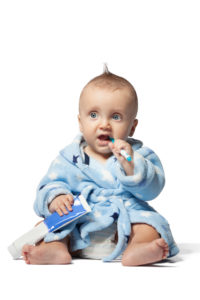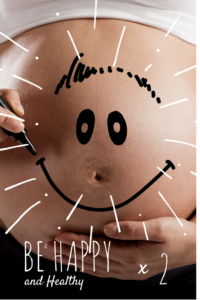Oral Care During Pregnancy
PRE-PREGNANCY DENTAL HEALTH
You are less likely to have dental problems during pregnancy if you already have good oral hygiene habits.
- Brush your teeth at least twice daily with fluoridated toothpaste.
- Floss between your teeth.
- Visit your dentist regularly.
If you are planning on getting pregnant, see your dentist. It is more convenient to have elective procedures done before you conceive. If you require dental treatment during pregnancy, non-urgent procedures are often performed after the first trimester and before the middle of the third trimester.
Tell your dentist if you are pregnant
Pregnancy may affect your dental care. For example, the dentist may put off taking x-rays until after the birth of your baby. If dental x-rays are unavoidable, the dentist can take precautions to ensure your baby’s safety. If your dental condition requires general anaesthesia or medications, talk to our dentist, your doctor or obstetrician for advice.
DENTAL DISEASE CAN AFFECT A DEVELOPING BABY
Research has found a link between gum disease in pregnant women and premature birth with low birth weight. Babies who are born prematurely may risk a range of health conditions including cerebral palsy and problems with eyesight and hearing.
Estimates suggest that about 18 out of every 100 premature births may be triggered by periodontal disease, which is a chronic infection of the gums. Appropriate dental treatment for the expectant mother can reduce the risk of premature birth by more than 80%, according to one study.
Causes of dental health problems during pregnancy
- Gum problems
- Vomiting
- Cravings for sugary foods
- Retching while brushing teeth.
Gum problems
Gum problems that occur during pregnancy are not due to increased plaque, but as a heightened response to plaque as a result of increased hormone levels. Therfore pregnant women are more susceptible to gum problems such as:
- Gingivitis which is more likely to occur during the second trimester. Symptoms include swelling of the gums and bleeding, particularly during brushing and flossing between teeth. It is important to visit the dentist more frequently during pregnancy so that plaque or calculus can be removed with a professional clean. This will help prevent gingivitis
- Periodontal disease which is caused by untreated gingivitis and can lead to tooth loss. If undiagnosed or untreated– pregnancy may worsen this chronic gum infection. It can show up as gum swellings, known as pregnancy epulis which may, or may not resolve once your baby is born.
Talk to your dentist about any gum problems that you might have. Switch to a softer toothbrush and brush your teeth regularly, at least twice a day. Use a toothpaste that contains fluoride (if not already) as this will help to strengthen your teeth against decay.
If you’ve had gum problems during pregnancy, it is important to get your gums checked by a dentist after you have given birth. While most types of gum problems caused by pregnancy hormones resolve after birth, a small number of women may have developed a deeper level of gum disease that will need treatment to resolve.
VOMITING CAN DAMAGE TEETH
Pregnancy hormones soften the ring of muscle that keeps food inside the stomach. Gastric reflux (regurgitating food or drink) or the vomiting associated with morning sickness can coat your teeth with strong stomach acids.
Therfore repeated reflux and vomiting can damage tooth enamel and increase the risk of decay.
- Don’t brush your teeth immediately after vomiting. While the teeth are covered in stomach acids, the vigorous action of the toothbrush may scratch the tooth enamel.
- Rinse your mouth thoroughly with plain tap water.
- Follow up with a fluoridated mouthwash.
- If you don’t have a fluoridated mouthwash, put a dab of fluoridated toothpaste on your finger and smear it over your teeth. Rinse thoroughly with water.
- Brush your teeth at least an hour after vomiting.
Retching while brushing teeth
Some pregnant women find that brushing their teeth, particularly their molars, provokes retching. However, you risk tooth decay if you don’t brush regularly.
- Use a brush with a small head, such as a brush made for toddlers.
- Take your time. Slow down your brushing action.
- It may help to close your eyes and concentrate on your breathing.
- Try other distractions, such as listening to music.
- If the taste of the toothpaste seems to provoke your gag reflex, switch to another brand. Alternatively, brush your teeth with water and follow up with a fluoridated mouthwash. Go back to brushing with fluoridated toothpaste as soon as you can.
Food cravings while pregnant
Some women experience unusual food cravings (and food avoidance) while they are pregnant. A regular desire for sugary snacks may increase your risk of tooth decay. Try to snack on low-sugar foods instead.
If nothing but sweetness will satisfy your craving, try to sometimes choose healthier options such as fresh fruits. Rinse your mouth with water, or brush your teeth after having sugary snacks.
Increase your calcium during pregnancy - You need to increase your daily amount of calcium during pregnancy. Sufficient calcium will protect your bone mass and meet the nutritional needs of your developing baby.
- Low fat milk
- Low fat cheese
- Low fay yoghurt
- Calcium-fortified soymilk.
Pregnancy does not automatically damage your teeth. The old wives’ tale that warns a woman to “expect a lost tooth for every baby”…. is false. If the mother’s intake of calcium is inadequate during pregnancy, her bones – not her teeth – will provide the calcium her growing baby needs. This calcium loss is quickly made up after breastfeeding is stopped. However, the demands of pregnancy can lead to particular dental problems in some women.
With proper hygiene at home and professional help from your dentist, your teeth should remain healthy throughout pregnancy
Increase your vitamin D this helps the body to utilise calcium.
- Cheese
- Fatty fish, such as salmon
- Eggs.
- Margarine
You are less likely to have dental problems during pregnancy if you already have good oral hygiene habits. It is worth keeping in mind, more regular dental visits may be required due to pregnancy gingivitis or pregnancy epulis. If you experience any discomfort what so ever tell your dentist straight away. In the final stages of the pregnancy some women can experience dizziness, nausea and fainting when lying in the horizontal position. Keeping your right hip slightly raised (10-12 cm) or inclined to the left, while you are seated in the dental chair, may help prevent this problem from happening.
If there is anything that will make you more comfortable, please let us know.
YOUR BABYS TEETH DURING PREGNANCY 
A baby’s teeth start to form during pregnancy. By the time the baby is born, a full set of primary teeth would have begun to form underneath your baby’s gums
During the last three months of pregnancy, the mother provides the minerals needed to calcify the baby’s teeth.
The best source of these minerals is from an increased intake of dairy foods (or other calcium-rich foods and drinks) by the mother. A nutritious diet and good dental hygiene during pregnancy will ensure that mothers and baby’s teeth will be healthy and strong.
DENTAL CHECK UPS - FOR BUBS
It is recommended that parents bring their little bubs to their dental visit to receive some early advice. Initially these visits will be “a ride in the chair” so that they become familiar with the dentist.
Then children as young as two years of age are seen for a regular check-up Initially, the dentist will look in their mouth and count their teeth. These complimentary visits are important as they will give an early indication of any risk of decay.
As your little one grows, a general clean will be introduced into their regular checks to help keep on top of the level of plaque to help prevent tooth decay. This will set your little person up for a happy and healthy life.






